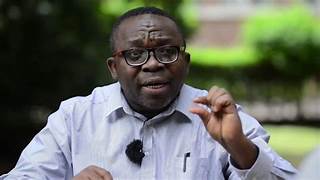Religion and Unfolding Genocide in Nigeria?
By Leo Igwe
Nigerian humanists welcome the British All Party Parliamentary Group (APPG) Freedom of Religion or Belief (FoRB) report “Nigeria Unfolding Genocide? Three Years On”. All Party Groups, informal groups of members of both Houses, publish reports on issues of particular interest. This report, compiled to assess the nature of FoRB violations in Nigeria and discern policy priorities, codifies some of our best hopes in these dark and troubling times. As the report rightly noted, the situation of FoRB in Nigeria has worsened and continues to deteriorate due to a lack of effective mechanisms to address and contain these violations.
To adequately situate this report and its findings, it is pertinent to note that the practice of religion in Nigeria has never been free. Freedom of religion is (mis)understood to mean the profession of religion, not irreligion or no religion at all. Freedom of religion is mistaken as the profession of Islam in Muslim-dominated areas and the profession of Christianity in Christian-dominated areas. Thus, the right to believe as one wants has not been a facility that every Nigerian enjoys in principle and practice. Freedom of religion or belief has mainly been on the surface and can only be spoken about in relative and comparative terms. Religious expressions are predicated on authoritarian, absolutist, infallible, and dogmatic forms. Covert and overt sanctions, coercion, threat, intimidation, and structural and physical violence are associated with religious expressions.
Some of the violations highlighted in the report have been going on over the years and constitute a part of the history and manifestations of these religions in Nigeria. But these violations have largely been ignored due to a cultural habit that forbids and prohibits the criticism of religious authorities, expressions, and behaviors.
As the report notes, poverty, climate change, tribal and ethnic tensions, criminality and corruption, politics, the flow of weapons, and extremist religious ideologies are driving factors of FoRB violations.
However, humanists note that impunity and lack of political will to penalize perpetrators are key drivers of this unfolding genocide. FoRB violations have been on the increase because nobody has been brought to justice for committing these crimes in the past. Nobody has been held to account; nobody has been punished for perpetrating these abuses.
For instance, before the sentencing of Nigerian humanist, Mubarak Bala, authorities disappeared him for months; they detained him without trial. But nobody was held to account. A court ruled that he be released but authorities ignored the ruling. He was tortured and pressured to reconvert to Islam while in police custody. But nobody was queried. Those who attack, torture, and murder for blasphemy or apostasy get away with their crimes.
For these violations to stop, impunity must end.
The sentencing of Bala has forced humanists to go underground. Many humanists live in constant fear of their lives. Existing apostasy (sharia) and blasphemy laws, and a policy that excludes religious questions from the national census have made it difficult to know, track and address the persecution of humanists in Nigeria.
Lastly, humanists want to draw the attention of this parliamentary group to abuses and violations linked to religious belief in witches and witchcraft. We wish to bring to your notice the brutal murder of Mrs. Martina Okey Itagbor in Cross River state in Southern Nigeria on Sunday, June 18, 2023. Those who believed that she was a witch and used supernatural means to inflict illness and death on people in the community abducted her, macheted, and lynched her. Suspected witches are subjected to horrific abuses. They are routinely attacked, set ablaze, buried alive, or murdered in cold blood across Nigeria.
As in the case of violations linked to blasphemy allegations, those who suspect, allege, or impute witchcraft act with impunity, and, in most cases, get away with their crimes. The Nigerian law prohibits witchcraft accusations, jungle justice, and trial by ordeal, but perpetrators are seldom brought to justice. Humanists urge this parliamentary group to pressure Nigerian authorities to take action against these egregious violations and pull the country back from this looming and unfolding genocide.
Leo Igwe is a board member of the Humanist Association of Nigeria and Humanists International, UK




